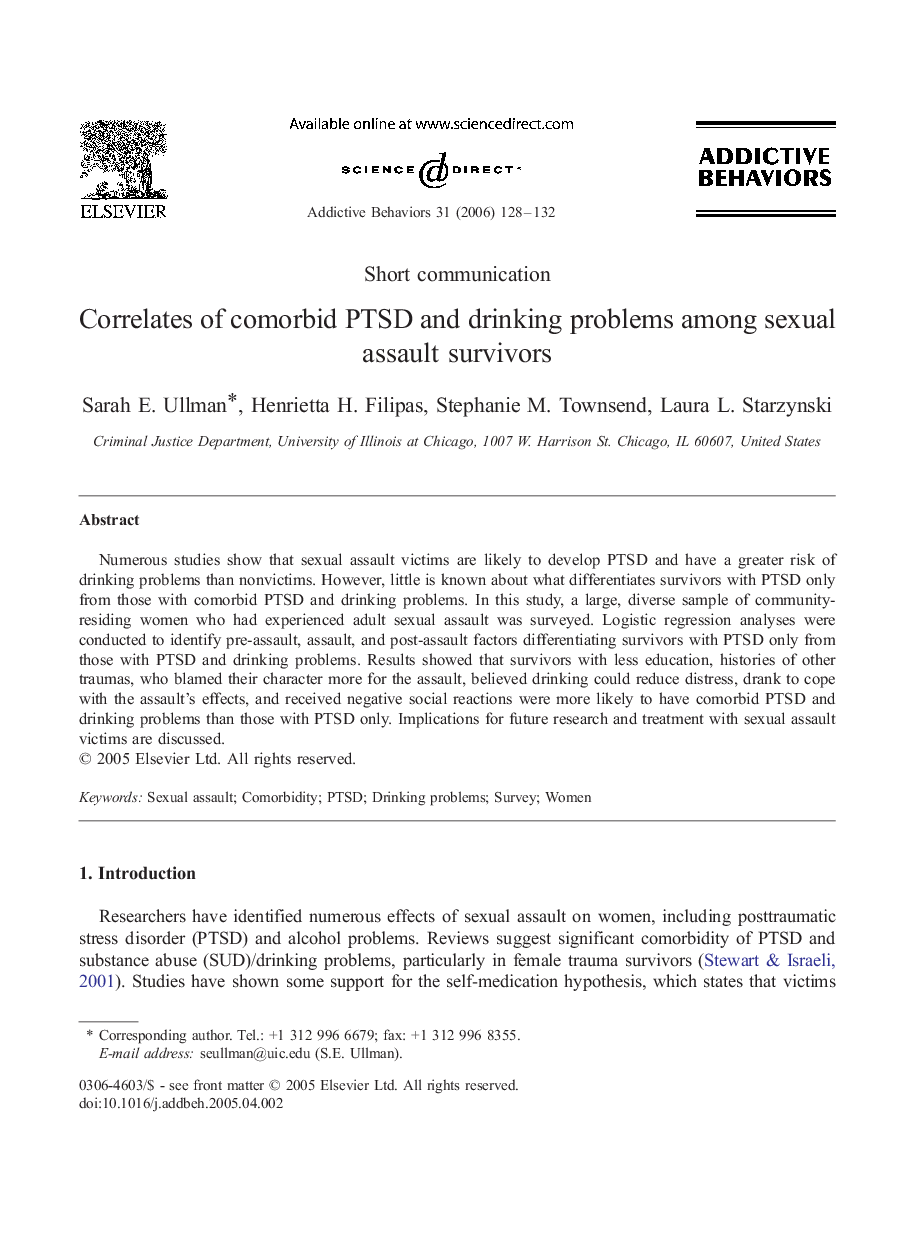| Article ID | Journal | Published Year | Pages | File Type |
|---|---|---|---|---|
| 900705 | Addictive Behaviors | 2006 | 5 Pages |
Numerous studies show that sexual assault victims are likely to develop PTSD and have a greater risk of drinking problems than nonvictims. However, little is known about what differentiates survivors with PTSD only from those with comorbid PTSD and drinking problems. In this study, a large, diverse sample of community-residing women who had experienced adult sexual assault was surveyed. Logistic regression analyses were conducted to identify pre-assault, assault, and post-assault factors differentiating survivors with PTSD only from those with PTSD and drinking problems. Results showed that survivors with less education, histories of other traumas, who blamed their character more for the assault, believed drinking could reduce distress, drank to cope with the assault's effects, and received negative social reactions were more likely to have comorbid PTSD and drinking problems than those with PTSD only. Implications for future research and treatment with sexual assault victims are discussed.
